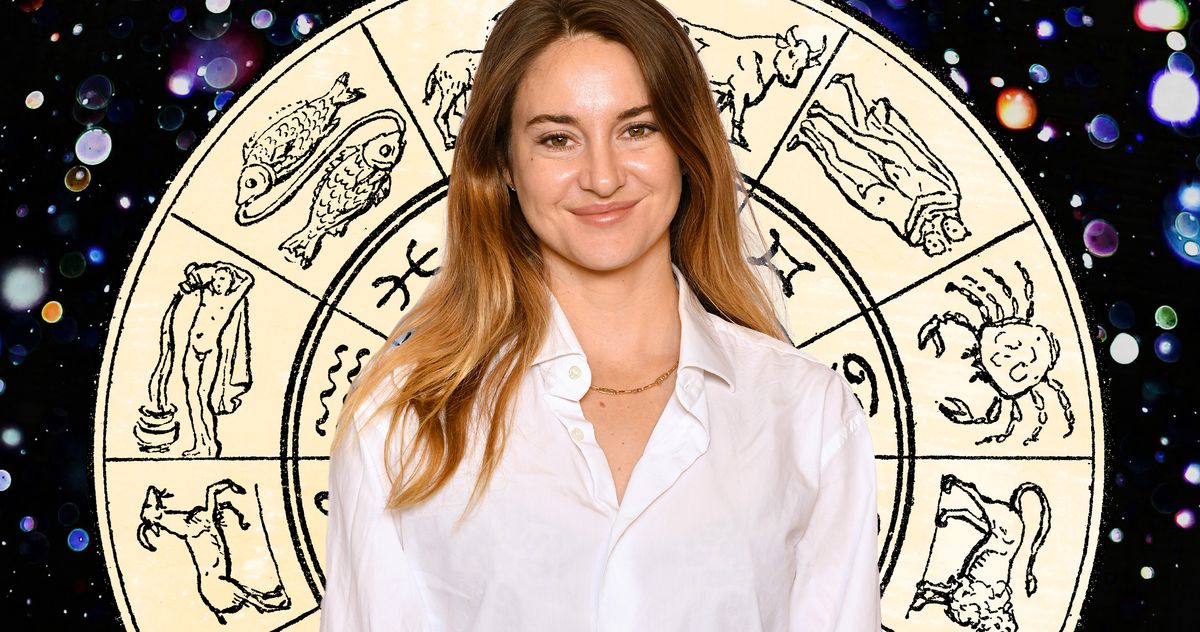Entertainment
‘Exhibiting Forgiveness’ Is A Fantastic Family Drama

“Exhibiting Forgiveness” is a powerful narrative that blends artistry, emotion and cultural significance.
Titus Kaphar brings the same visionary approach to his directorial debut that has made him one of the most influential contemporary painters of our time. Known for reimagining history and highlighting marginalized voices through his art, Kaphar applies his keen eye for detail and emotional depth to every scene. His transition from canvas to cinema feels seamless, turning each frame of “Exhibiting Forgiveness” into a visual and emotional masterpiece.
The film is loosely based on Kaphar’s life, detailing pivotal moments of his past and present. It follows Tarrell (André Holland), an artist who receives an unexpected visit from his estranged father La’Ron (theater veteran John Earl Jelks). La’Ron is a recovering addict on a mission to repair his relationship with his son, who’s caught between dwelling on his past hurts and the possibility of healing. Andra Day shines in the film as Aisha, Tarrell’s wife. The cast also includes Golden Globe nominee Aunjanue Ellis-Taylor as Joyce, Tarrell’s mother, who also delivers a powerful performance. The film is in theaters Friday.
Holland and Day are two performers known for their commitment to roles that help redefine Black representation. Holland, celebrated for his nuanced portrayals of complex men in films like “Moonlight” and “High Flying Bird,” once again takes on a role that challenges and elevates. Like Holland, Day is drawn to roles that offer emotional depth and authenticity, and her performance in this film is a testament to the raw emotions she brings to every project she chooses. With Kaphar’s direction, the ensemble cast elevates “Exhibiting Forgiveness” into a moving exploration of family, reconciliation and the transformative power of forgiveness.
HuffPost spoke to Holland, Day and Jelks about the film’s spiritual themes, how working on it changed the stars’ own relationships with forgiveness and how they’ve maintained a sense of positivity while tackling heavy subjects.
The theme of spirituality plays a significant role in the film. How do you interpret spirituality in your life, and how does it influence your approach to acting and storytelling?
André Holland: It’s so interesting that you asked that question — when you’re doing acting right, I think that there is a connection to spirit, to the divine, that is available to you. Our work as performers has the potential to be incredibly transformative in the world, whether you consider yourself to be religious or spiritual or whatever. I think that that’s something I’m really, really curious about.
I’m in a program right now, in fact, in a divinity school, where I’m studying about these exact things that you’re talking about — about the relationship to spirituality and to performance and to what we do. I’m reading about these peace workers in the world; there’s a guy called John Paul Lederach who wrote a book called “Moral Imagination,” and he’s a peace builder. He goes around the world trying to negotiate peace in different settings, and he talks about peace building as being an essentially creative act. When he talks about his approach to resolving conflict or communicating across differences, he talks about it in the exact same way that we talk about performing.
You are one of my favorite actors because you’re so versatile, to the point where I not only believe the story, but I believe you are that character. Your collaborations with notable directors like Barry Jenkins have been impactful. What qualities do you seek in a director to ensure a successful partnership, both creatively and personally?
Holland: Curiosity is something I look for in a director — someone who’s open and doesn’t have all the answers and isn’t afraid of the fact that they don’t have all the answers. That’s true with Titus, Barry, I mean, so many people. I also like an openness to collaboration. To me, the great directors go, well, I have a clear picture of what I want, but I’m also open to being influenced by another person, so I think those things make a big difference. I appreciate the kind words, man, but the truth is that I’ve had wonderful teachers, and one of them is sitting right next to me, this cat named John Earl Jelks. I’ve admired his work for a very, very long time, and so I have learned from him over the years and learned from so many other people. I’m just glad to be one of the number, as they say in the church, and would like to add something to the lineage of Black storytellers who had an impact in the world.
Courtesy of Roadside Attractions
Reflecting on your body of work, how do you balance the demand for mainstream success with the desire to take on more unconventional, challenging roles?
Jelks: It’s like climbing up a ladder — you really don’t want to miss any steps because if you miss a step, then you actually miss the point of getting there, truthfully, and that’s the real balance for me. I believe in taking one step at a time. It’s almost like when people say, you build a strong brick house brick by brick; you have to apply that with this career as an artist. Appreciate each journey, because each journey is gonna bring something different. All the challenges you accept, all the mishaps, you accept that, and you just try to make it better for the next project that you go on.
Holland: I would also say sometimes it could be frustrating to feel like this sort of mainstream audience doesn’t necessarily see the value in the stories that I think we see. I think part of my job calling is to share with people just how beautiful I think we are. I love being able to tell stories like that in particular. I see so much value in our stories, and I think it’s so important that people support movies like this.
Art can be a powerful form of escapism. Did working on this film provide you with a space to confront any personal challenges or emotions, and how did it help you cope?
Holland: You always come with the great questions, and I should’ve known you would today. It’s interesting how in art, there’s this thing where — I don’t know if you agree, but it feels like sometimes your life and your art kind of meet up at these really pivotal moments. In this instance, when I first got this script sent to me, my father actually was going through cancer treatments. At that time, it led me to think more deeply about our relationship and how I wanted those last months together to look. When it came time to do the movie, my dad was gone, but it felt like doing this movie gave me an opportunity to be in conversation with my dad in a different way. To really fight for that love that I have for him and that I think exists between these two. It was really healing for me, both when I got the script and also in getting to do it. Now that we’re sharing it out into the world, when I watch it, man, I see my dad all over it, you know, I hear his voice in me. It’s been a powerful experience.
Day: I think for me, more than anything, this film helped me to understand that forgiveness is a difficult thing. You need to have grace, not just when you’re forgiving someone, but when you’re asking for forgiveness, too. It’s a challenge; interestingly enough, it did another thing that I think is a little more nuanced in the movie, which is to help me with my own boundaries and my own non-negotiables. I really struggle with that. I’m very much a people-pleaser. I don’t want to upset anyone. It’s really interesting that Aisha, as much as she’s supporting him, she loves him, even with her own husband and her own family, she has to put her foot down and say, it is my turn. We establish this, which I think is love. I think it’s important to help people adhere to the promises that they made to themselves and to the things that will grow them. Aisha really helped me, and I still struggle with it.
The film delves into the tug-of-war between holding onto the past and moving forward. Can you share a personal experience where you faced a similar conflict, and how did you navigate it?
Jelks: My dad was passing, and there were some things I never got a chance to really say to him until he was actually on his deathbed. The things I actually said to him, I was too afraid to tell him before that. I was wondering, why was I afraid? When I really looked deep inside, it was because of me really and not because of him. I don’t feel like I had healed enough inside to go and ask him these questions that I thought were so tough. Even on his deathbed, he had the answers to be able to reflect on that. Then to be able to do this inside of this film, it was magical.
Holland: I have a tendency to hold onto things — to people, to situations, to relationships — sometimes longer than I should, because I have this feeling, oh, I can fix it, or we can work it out, or let’s try to look at it again. Sometimes it’s OK to let things go. This movie teaches us no to be bound with certain folks or certain situations in order to protect oneself. That has helped me understand how to have more compassion with myself and also how to have more compassion for other people who maybe want boundaries in relationship to me.
Day: It’s actually much harder for me to forgive myself. That’s my tug-of-war, often between the past and the present. The future is like, I can believe that I have asked for forgiveness, and I am forgiven, and I believe that I am forgiven, but I still live my life and walk under the guilt or the shame or the difficulty of, I said this, or I did this, or I missed the boat here. You have to let go and you need to forgive yourself and walk in that. That’s something that actually was helpful with this movie and with this process and this season of my life. I’m sort of vacillating about how to really give things to God.
Support Free Journalism
Already contributed? Log in to hide these messages.
As artists, you often tackle heavy themes in your work. How do you maintain a sense of hope and positivity in your creative process while addressing such profound issues?

Courtesy of Roadside Attractions
Day: You already know I’m gonna say prayer is a huge thing for me. God is literally my hope — this is the reason why I do these films, because I think that they’re heavy films, but people are going through heavy things in life. With this film, with “The Deliverance” and then with the Billie Holiday film, there’s still these beautiful moments of levity, of laughter, of humor, of lightness, of hope — and so I make sure to never lose that. I think the reason I’m able to do that is because telling these stories, for me, is actually hope. It’s a heavy story, obviously, about the father-son dynamic. Ultimately, it tackles forgiveness and though it’s a hard-fought battle, forgiveness is healing.
Your work as an activist is inspiring. How do you integrate your activism into your artistry, and what role do you believe artists should play in social justice movements?
Day: I can’t be called an activist because I think I just look at the people and have so much respect for them who are organizing the movements and are the boots on the ground. I understand the more and more I do it, that it is a multi-layered thing that has to happen. I think artists are the megaphone; they are the voice. I feel like there is more resentment toward artists throwing their platform in, whether it’s activism or politics or whatever. I don’t think that should slow us down or have us stop. I think people forget that artists and entertainers are still people with opinions and with ideas and with desires and a hope for people in the future. My activism is really tied to my faith. I want to make sure I’m living a life that serves people and that loves people, and that when people come around me, they feel loved and feel safe, and they feel God’s love for them. I think it’s really also about choosing the projects that I choose. I want to make sure that they’re saying something and can help people through whatever it is that they’re going through.
If you could produce a biopic on any historical figure other than Billie Holiday, who would it be and what message do you think their story could convey to today’s audience?
Day: So there’s a few of them; I’ve actually thought about this. I’ve written it down, and I’ve actually started the process on some of these. Eartha Kitt is one of them, Angela Davis and Assata Shakur. Angela Davis says this very well; she talks about the intersectionality of struggle often. These women come from totally similar but different walks of life. We think they’re the same because they’re Black women, but they’re truly not. I think that the idea of being fully who you are — fully who you know you were made to be — and to not suppress your voice as a Black woman, I think that’s what I would really want, no matter where it comes from. I think that that’s a huge reason why I would want to play these women. They were sadly penalized for raising their voice, whether it was for being Black, whether it was for being a woman, whether it was for being queer. They were suppressed often, but I think they didn’t stop and that’s what I love about these three women’s stories.
“Exhibiting Forgiveness” is in theaters Friday.








